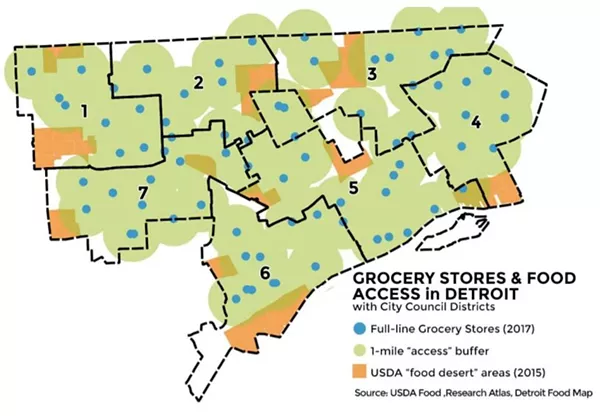Eight years ago we were told Detroit was considered a "food desert" and then about six years ago, we learned that Detroit was "not a food desert."
According to data found in the Detroit Food Policy Council's 2017 Detroit Food Metrics Report, there are still healthy food gaps throughout the city despite 74 full-line grocery stores (shops that offer dry and canned goods, fresh produce, meat, dairy products, and nonfood items) operating within city limits.
The Detroit Food Policy Council is a nonprofit, which aims to promote sustainable local food systems to strengthen food security across the city of Detroit. The term “food insecurity” may suggest a surface issue, but it defines the ongoing socio-economic crisis between the community and the lack of physical or financial access to safe and nutritious food every day. According to the report, nearly half of the city falls under this category.
Here's a breakdown of the metric report:
- 30,000 people do not have access to a full-line grocer.
- 48 percent of households are food insecure.
- 40 percent of households enrolled in SNAP (Supplemental Nutrition Assistance Program, most commonly referred to as food stamps) and 18 percent of SNAP-eligible households are not enrolled.
- 19 percent of Detroit children are enrolled in WIC (Women, Infants, and Children) meaning 1 in 5 children are fed through the government assistance program.
- 48 percent of WIC stores are liquor stores.
The report also explores the connection between food insecurity and health, revealing that 37 percent of Detroit adults are considered obese and 14 percent have been diagnosed with diabetes. According to the European Journal of Nutrition, “Poor diet generates a bigger non-communicable disease (NCD) burden than tobacco, alcohol, and physical activity combined."
To view the full report as uploaded by WDET.org, click here.
Stay on top of Detroit news and views. Sign up for our weekly issue newsletter delivered each Wednesday.







